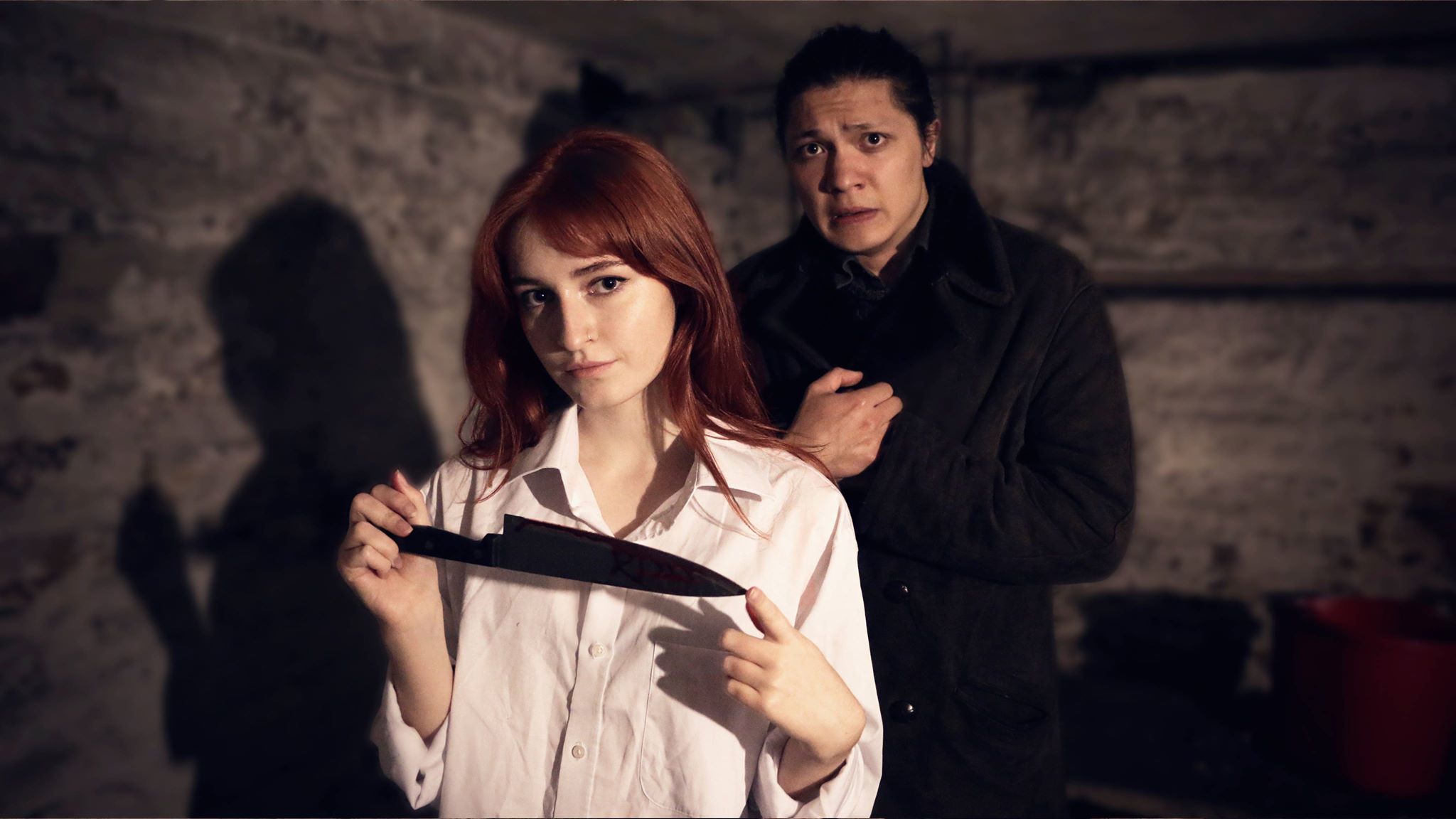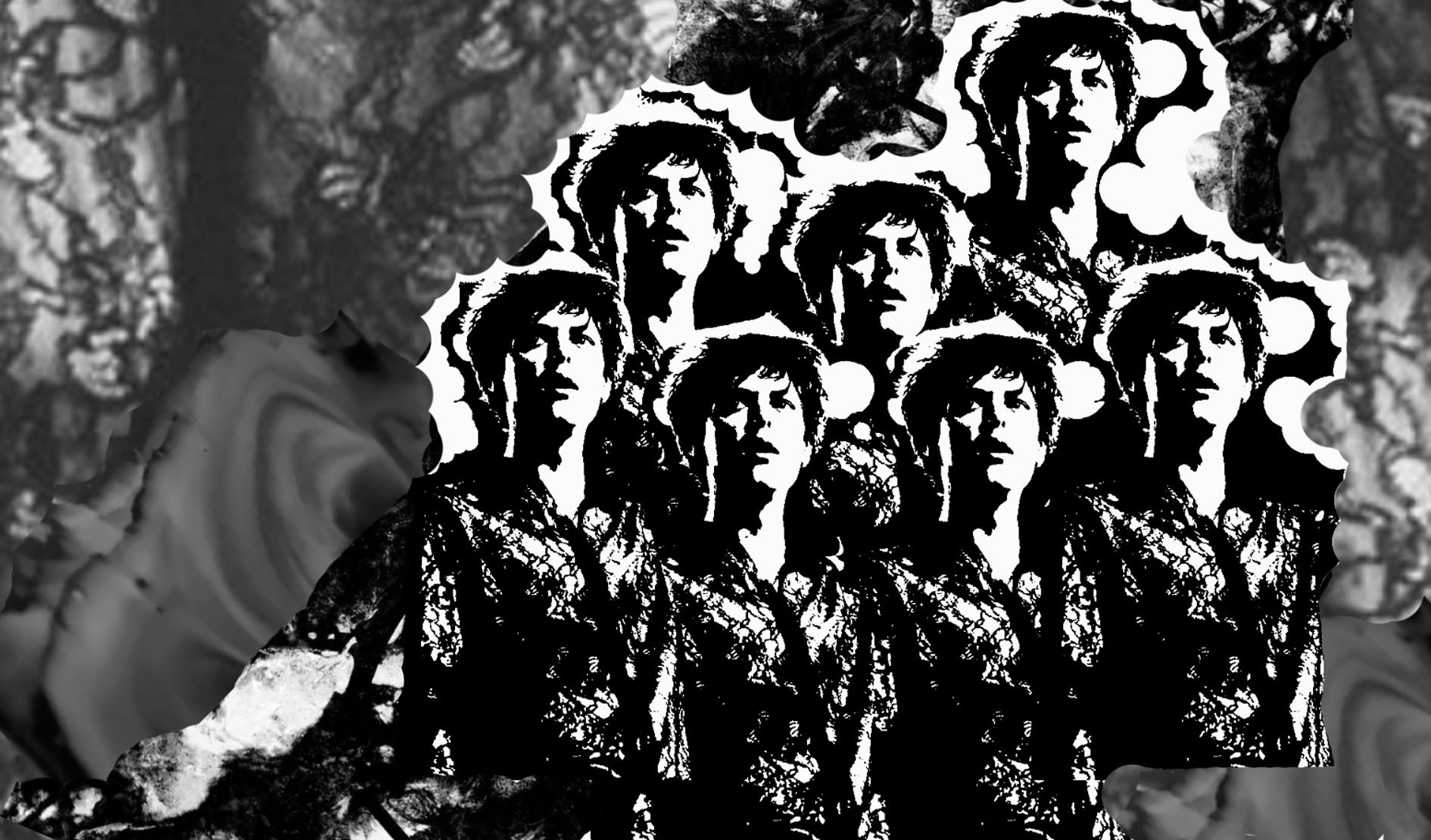If I could save an art form, I would pick theatre. I would save the puzzlingly intimate relationship between actor and audience, the goosebumps of dimmed lights and carefully selected sounds, the aim to immerse; to engulf the watcher through dialogue, costume, setting, things explained and things understood. I would save theatre, for all the sensations you can’t get through a screen.
That’s why my heart lies with student theatre, and writers who choose to mould their words into lines in alternating voices. So when James Huxtable, a contributor for KILORAN, actor and writer, announced that his debut play; Beakers Place would be going to Edinburgh Fringe, taken there by the theatre company, Only Lucky Dogs, which he set up with his peers, I was immediately excited. But James revealed nothing, keeping the plot a mystery, revealing minimal clues or information about his characters, so I saw it fresh-eyed and free of expectation as they previewed the play ahead of the Fringe.
The first thing that struck me was the minimal set; only a table, shelves lightly decorated with an urn labelled ‘paul’, and two chairs with a noose hanging above one. There’s little to rely on, but when Matthew Bevan, playing the titular role Beaker, starts to speak, you quickly realise he needs nothing. Eloquently and with-ease, Bevan slips into mania, switching in seconds between humour and hysteria, each as believable as the other. Talking to himself in a tone that’s reminiscent of a modern-day Macbeth, the audience is introduced to the inner turmoil facing Beaker, as the confident and charming character lightly contemplates his suicide plans. Revealing the name on the urn, Paul, to be his dead cat, Beaker’s one-sided conversation with his lost companion opens up the challenge to the audience; you can’t help but like this psycho. Bevan’s faultless presentation of turmoil, moving seamlessly between fast-paced raving coated in dark humour to tears, builds dimension upon dimension, confronting the audience almost instantly with a character so intense and real, I wasn’t quite sure how to react except to let myself go. I laughed at Beaker’s mindless thoughts on Hitler’s art career and felt myself ache for him as he dusts his feet, before climbing onto the chair in front of the noose.
The one thing we know for certain about Beaker is that he disposes of bodies, knowledge that prompts the arrival of the not-dead Drew, played by Lorna Dale. Again, the audience isn’t sure what to do with this character, as Dale’s initial presentation is one of innocence with a sinister aftertaste. The two characters interactions start almost as weirdly as they end, with Beaker sharing too much and Drew stabbing back with brutal one-liners, asserting herself as an outright, no-bullshit presence in contrast to the frantic Beaker. Paul Simon’s Call Me Al makes it, providing the strangest soundtrack to the strangest meeting of two of the strangest characters, a sickly sweet backdrop to total mania as the characters yell at each other.
Strange is the perfect description. Huxtable’s characters are a constant conflict, both in the plot and in the mind of the audience. You should hate them; you should hate Beaker who talks pleasantly about Hitler and Drew who is unphased and unsympathetic to the signs of Beaker’s suicidal thoughts. While the play deals with difficult subjects like suicide, depression and loss, Huxtable’s character are insensitive, making them all the more captivating.
Lorna Dale as Drew was especially captivating as the character begins to unravelling, undoing all the earlier misconceptions of her innocence and naivety. I found myself unblinking during her monologue about Pandora’s box and the danger of curiosity, a moment that suddenly crescendos. It’s poetic, displaying Huxtable’s merits as a writer, and again is reminiscent of Shakespeare as Dale has the intensity of Lady Macbeth in her eyes. You can’t help but feel a little guilty as an audience member, undeniably curious about these two characters, secretly willing them to boil over and reveal the reasoning to their condition, to open the box and release it. The addition of sound effects, used sparingly in the rest of the show, heighten Drew’s sudden transformation, dragging the audience into whatever sinister trance the character is lost in. The goosebumps change to sweaty palms.
The only thing that I could criticise was the speed of the ending. The intensity deserves more, Huxtable’s talent for writing complete chaos deserves a longer time in its climax. I would’ve liked a slightly slower unravelling, and to hear more from Beaker during the finale and a pause to check in on his mental state since we first meet him in a suicidal state. However, Dale and Bevan carry the mania off perfectly, never slipping up and fully diving into the confusion and hysteria of the scene. Despite the sudden increase in pace in the final moments of the play, the quirks and personalities of the two characters remain, allowing them to stay complex and challenging even as the action picks up. Down to the last second, the audience is still left unsure whether to like or hate them, and whether to celebrate or mourn the outcome.
Without stumbling, Huxtable’s writing flows between these two states; humour and intensity, full of the honesty and uniqueness evident in his poetry too. The concept would be laughable if it wasn’t executed so well, circling serious topics around the focal point of a dead cat, with Paul’s ashes sitting centrally in the story. Peaks and troughs of mania and humour, comedy and tragedy, power shifts and moments of intimacy all sit around this centre point, rocking back and forth between the two like a lunatic in the corner. While the storyline is fiction and exaggerated, the anxieties that float between these two characters are real and reflective, confronting the audience again and again when we suddenly start to see ourselves in the carelessness of Drew or the obsession of Beaker. Beaker’s place is exactly what I love about theatre, it’s controlling, making me laugh, cry and gasp on cue. All the jokes land, all the twists are shocking, and the characters, with their complete lack of morals, make you question your own stability in this world. I won’t forget it in a while, I’m still contemplating whether the curiosity would get too much, whether I would open the box.
Rating: 4.5 Stars – Unique, unexpected, and captivating; add it to your Edinburgh Fringe itinerary immediately.
—
Cast & Crew
Beaker – Matthew Bevan
Drew – Lorna Dale
Writer – James Huxtable
Director – MichaelSalibaa
Technical Manager – Iz Potter
SX – Conal Gallagher




